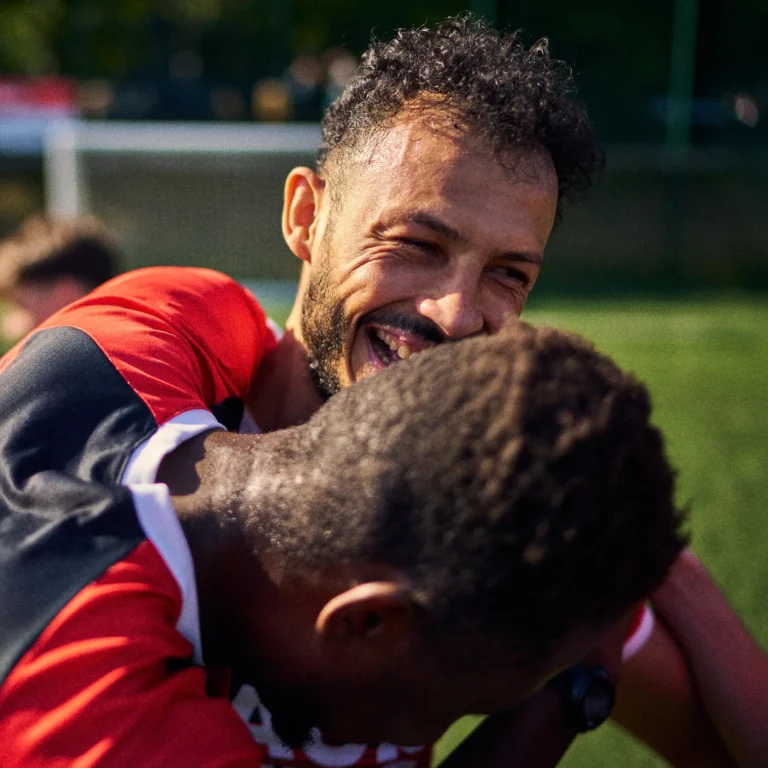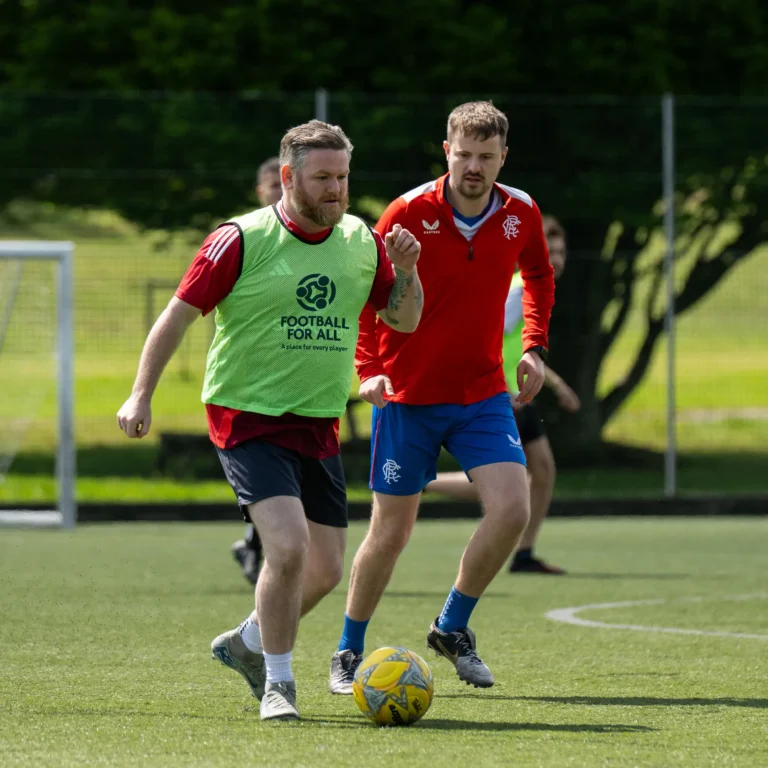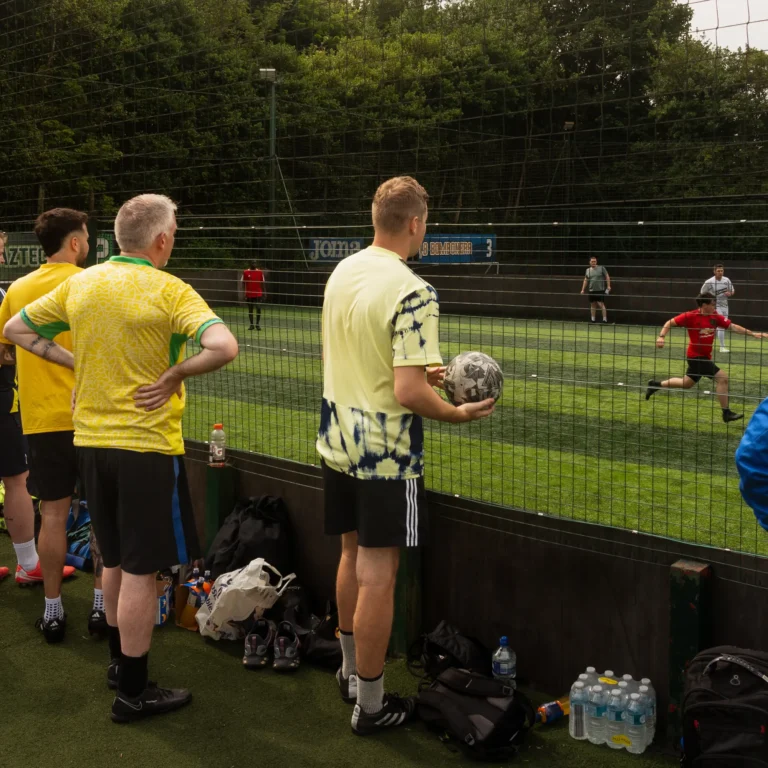Women’s football is growing faster than ever. The Lionesses have inspired a new generation, stadiums are filling up and more women are stepping onto the pitch. But when it comes to local kickabouts, it can still feel like there’s something missing. Finding a women-only game where you can just turn up and play with no pressure isn’t always easy.
From mixed games to women-only sessions
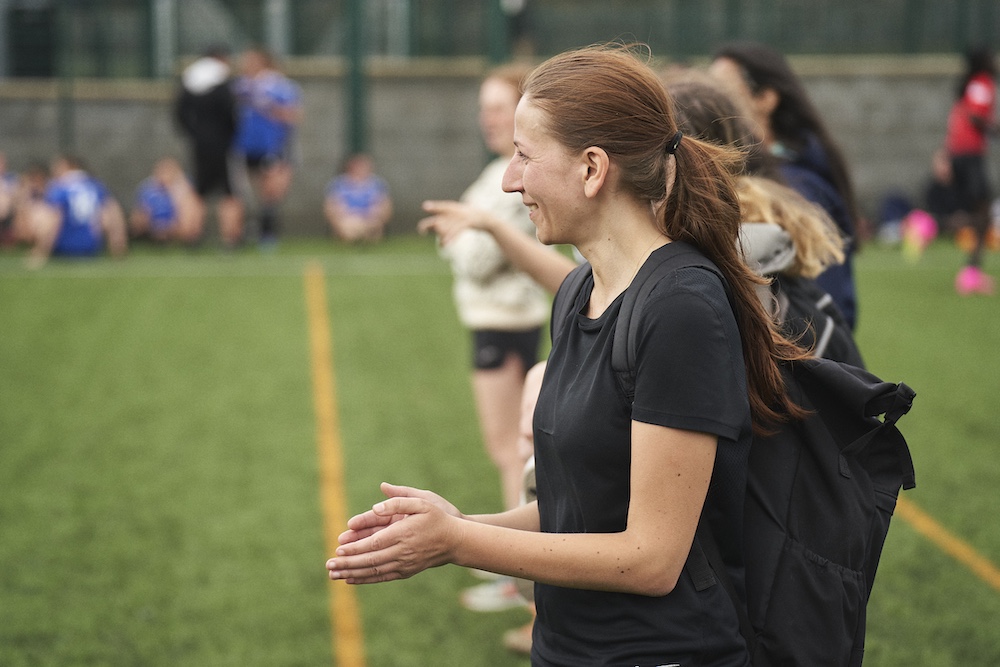
Football for All is a UK non-profit on a mission to make the nation’s favourite sport easy to access and inclusive. In practical terms, this means organising over 600 casual football games every week across the UK. That’s over 50,000 playing opportunities each month for people of all backgrounds to enjoy football. All games are mixed, inclusive of LGBTQ+ players and for anyone aged 18 and above.
However, back in 2017, Football for All (in partnership with Footy Addicts) recognised a gap. Despite the UK’s rich footballing culture, women often lacked opportunities to play in casual games. Following consultations with the London FA in 2017, we launched a dedicated women’s football programme to create more accessible, welcoming spaces for women to play. The London FA had set an ambitious goal to double the number of female players by 2025. This aligned perfectly with Football for All’s mission.
In summer 2017, we identified the areas of need and began organising women-only weekly games across a few London locations. These early sessions were 5-a-side or 6-a-side games in areas like Shepherd’s Bush (West London) and Whitechapel (East London). They gave women a relaxed way back into football, especially if they hadn’t played since school.
How local women’s football grew in 2025
Fast forward to 2025, and Football for All’s women-only programme has grown into more areas. As of last year, we have delivered over 360 women-only small-sided games for adult women (18+) in Islington, Angel, Shepherd’s Bush, Whitechapel, Dulwich, Manchester and even beyond England into Glasgow. That’s more than 4,000 participation opportunities for women each year, a huge increase from just a handful of sessions in 2017.
Each game is looked after by a dedicated volunteer and the atmosphere is described as fun, beginner-friendly, convenient and commitment-free. What’s great to see is how many women come back, bring friends and build their own football communities. It matters even more when you realise how many players are managing ADHD, OCD, autism or live with partial sight or hearing loss. Some also carry the kind of anxiety or feeling out of place that makes joining a new football group harder than it looks. And that’s without even mentioning when English isn’t your first language.
Women who join often report increased confidence, new friendships and a sense of community belonging.
Before:
I used to think football wasn’t for me, but these sessions changed my mind. Everyone was so encouraging from day one. Now it’s the highlight of my week and I’ve made great friends on the pitch – Sylvia (52)
After:
Women’s Football participation on the rise
Sylvia’s story is playing out all over the country. Women’s football in the UK is experiencing an unprecedented boom, especially since England’s historic victory at UEFA Women’s Euro 2022. The Lionesses’ triumph in front of 87,000 fans at Wembley has inspired a new generation of players. Consider some eye-opening numbers from recent years:
- In the four years to 2024, the number of women and girls playing football in England jumped by 56%. The FA reports that girls’ participation skyrocketed by 140% in the season after Euro 2022, with a 53% rise among adult women. That’s around 2.3 million more female players compared to before the tournament. This positive trend was turbocharged by the Lionesses’ success and continued strong performances (they even reached the World Cup final in 2023)
- At the elite level, attendances and visibility have exploded. The Women’s Super League saw total crowds increase by over 170% in the 2022/23 season, as matches moved into bigger stadiums. Grassroots clubs are growing too, thousands of new teams have formed to meet demand
- Big events leave lasting change. After Euro 2022, over 519,000 new opportunities (from local sessions to school programmes) were created to help women and girls get into football. Initiatives in schools mean 77% of schools now offer girls equal access to football All this progress shows the national appetite for women’s football has never been higher
With Euro 2025 on the horizon, excitement remains high. England’s women are set to compete on the European stage again and every success fuels more interest at home. But even as record numbers take up the sport, it’s important to remember that not everyone finds it easy to join in. Many women still watch from the sidelines due to personal or practical barriers.
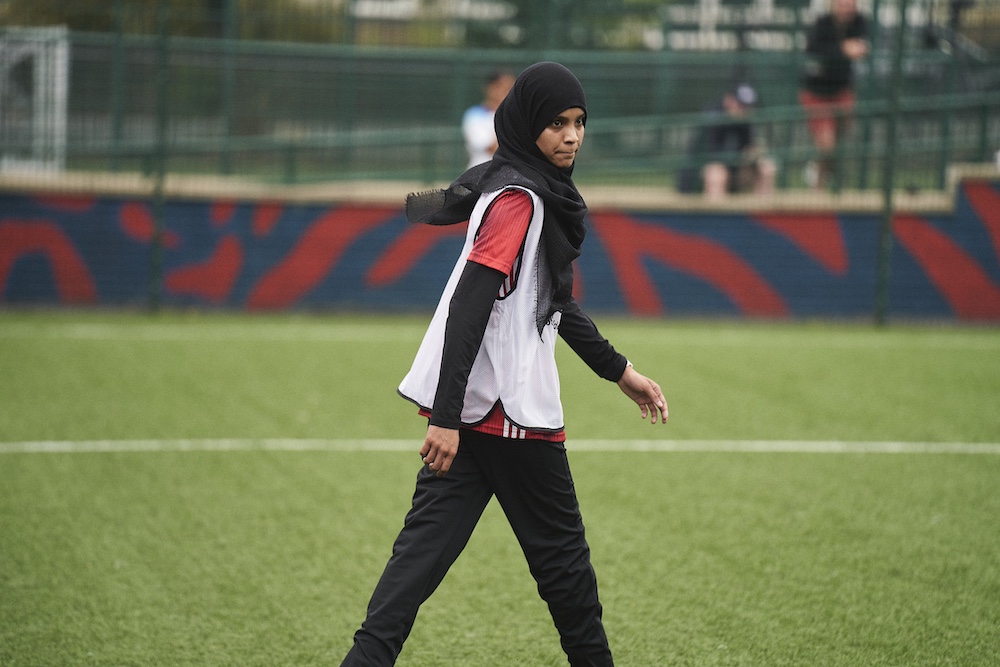
Expanding Women-only Football nationwide
While the Lionesses are lifting trophies and inspiring millions, it’s the casual kickabouts at the community level that truly open the door for newcomers. These friendly sessions are typically low-cost, low-commitment and perfect for absolute beginners and returners. In other words, they exist to help women like Sylvia who perhaps always felt football wasn’t for them or who haven’t played since school.
Having proven the concept in London (and pilots in Glasgow and Manchester), we at Football for All have ambitious goals for 2025 and beyond. The aim is to expand women-only sessions to every city where we currently organise mixed-gender (co-ed) football games.
What might this look like?
Imagine recreational women’s football on Tuesday nights in Birmingham, Sunday afternoons in Leeds and Saturday morning women-only 5-a-side in Liverpool.
Thanks to years of work, the infrastructure is already in place. That means a system to organise games, an active community of players and a team of volunteers who run sessions each week. With the right support, this setup will help us bring in more women-only games across the UK.
Timing is everything!
With the UEFA Women’s EURO 2025 approaching this July, there will be a surge of inspiration and attention on women’s football. Football for All wants to harness this momentum. By July 2025, we aim to promote our women’s programme so that when thousands of women are inspired by watching the Euros, they have somewhere local to actually play the game. Our vision aligns with that national ambition that no interested woman is left wondering “How do I get involved?” without a convenient answer.
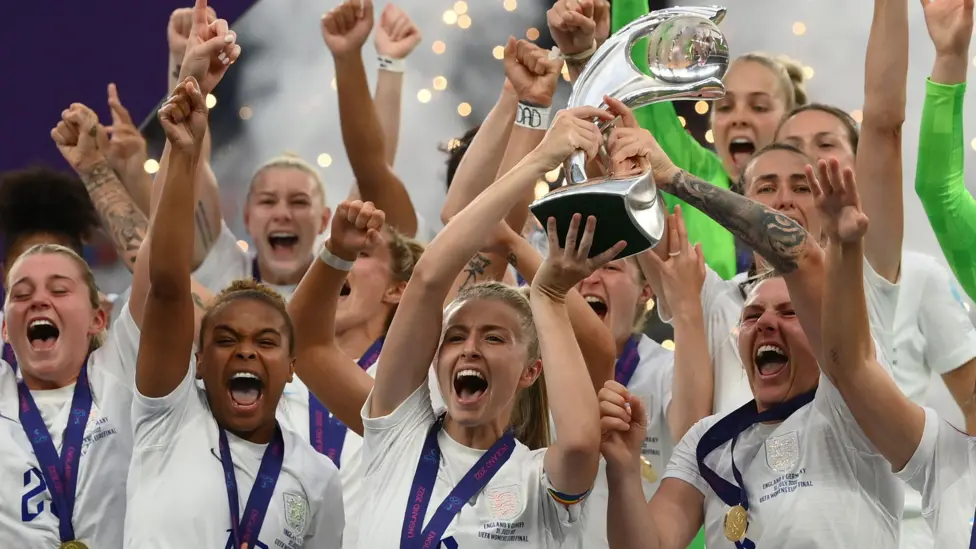
Helping the Women’s Football Programme reach its potential
While the passion and groundwork are there, scaling up this initiative will require support from key partners and stakeholders. Football for All is a non-profit operating on limited resources and expanding women’s programme nationwide is a big leap. To make it happen, the programme is seeking support in several crucial areas:
Funding and Grants
Financial backing is needed to cover basics like pitch hire fees and equipment. Many of the current sessions run on shoe-string budgets. With additional funding from governing bodies, we could secure more time slots at facilities and provide equipment (balls, bibs, pumps, first-aid kits) for new groups. Funding could also enable subsidised session fees or free taster sessions to lower the cost barrier for participants. Every pound invested will go straight back into local football.
Staff and volunteer support
Currently, a lot of the organising is volunteer-led and that ethos will remain. However, coordinating a major programme across many cities may require a dedicated Programme Manager and a small team of regional coordinators. Support with staff costs would help make the new sessions well-organised and sustainable. Training more female volunteer hosts who can run the games and serve as role models is also key. Initiatives like coaching workshops or leadership training (possibly supported by the FA or Sport England) could empower volunteers to step up.
Partnerships with Local Authorities and venues
Access to affordable, high-quality facilities is often very limited. Local women’s football would benefit from councils and leisure providers prioritising facility access for community groups and recreational football. This could mean allocating prime evening or weekend slots on artificial pitches to these women-only games. Community centres, schools and sports complexes could partner with Football for All to offer slots, perhaps at discounted rates as part of their community sport commitments. Such partnerships can dramatically increase participation. For example, if a council blocks out a regular slot for Football for All women’s pilot sessions in each borough, the programme could then meet the high demand expected during and after Euro 2025.
Awareness and Outreach
Finally, to raise awareness, support from national campaigns and media will help attract new players and volunteers. Campaigns like Sport England’s This Girl Can have already shifted perceptions and encouraged women to be active. Tying local programmes into such campaigns (for instance, advertising the women-only sessions as part of a Euro 2025 legacy) would boost participation. Additionally, FA support in promotion could shine a spotlight on Football for All’s work. The more people hear the message that “football is for everyone” and see opportunities near them, the faster the movement will grow.
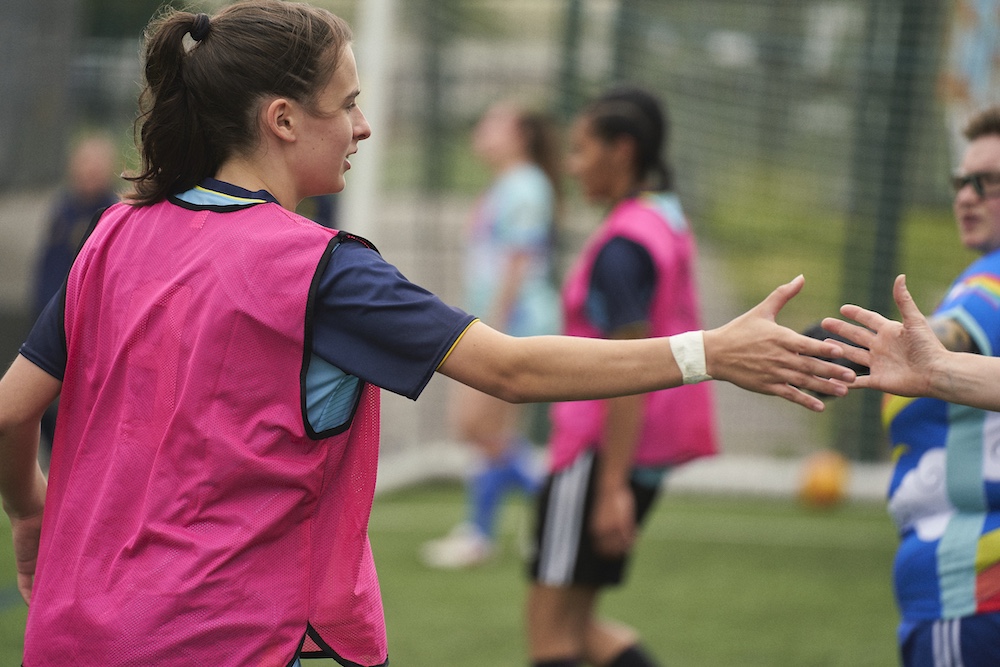
Why now is the best time to support local women’s football
The investments and partnerships made now can unlock thousands more opportunities for women to play. As the Women’s EURO approaches, there is a sense of urgency. Now is the time to back local initiatives that can turn the current wave of enthusiasm into lasting change.
The trajectory of Football for All’s women-only football programme shows what’s possible. In just a few years, a consultation and a couple of pilot games grew into a network of sessions that engaged over 4,000 women annually. All through community effort and love of the game. This growth mirrors the wider transformation in women’s football, where barriers are slowly coming down and records are being broken at every level. But there is much more to be done to make sure every woman who wants to play, can play. The upcoming UEFA Women’s EURO 2025 offers a golden opportunity to accelerate progress.
The next Sylvia is out there right now, thinking football isn’t for her. Thanks to these local games, she just might discover that it absolutely can be. She might find herself, six months from now, lacing up boots on a Tuesday night in Stoke, laughing with teammates and wondering why she didn’t start sooner. And that, as much as any trophy win, is a victory worth celebrating for the women’s game.
Ready to help? Get in touch
